Route 212
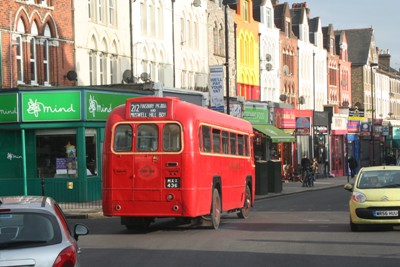
Stroud Green Road is considerably more
colourful than it was in the 1950s.
Photo © Peter Larkham
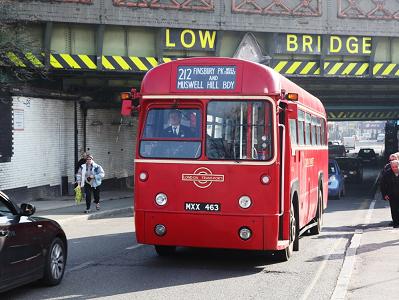
That bridge at Finsbury Park. Arriving to
take up duty.
Photo © Adrian Palmer
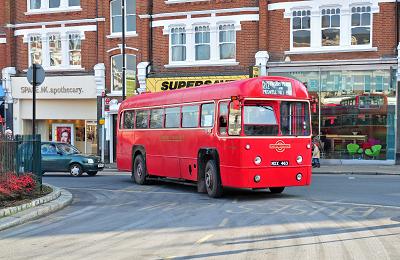
Arrival onto the stand at Muswell Hill.
Photo © Steve Whitelegg
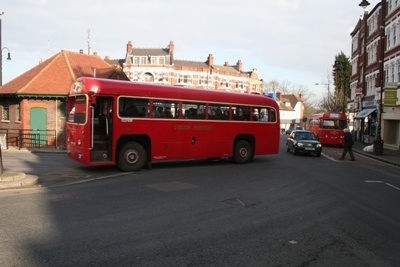
The 212 was a frequent service, so as each bus
unloads at the top of Muswell Hill and moves to the stand, there
should be another arriving behind. This was a one-bus event,
so it couldn't happen. Could it?
Photo © Nigel Henty
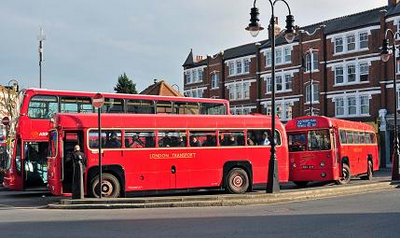
A touch of colour in Muswell Hill
Broadway. RF459 tucks in behind RF486.
Photo © Steve Whitelegg
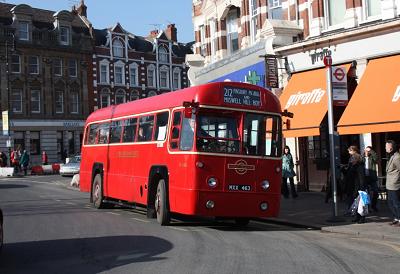
More Muswell Hill architecture. The
departure stop.
Photo © John Parkin
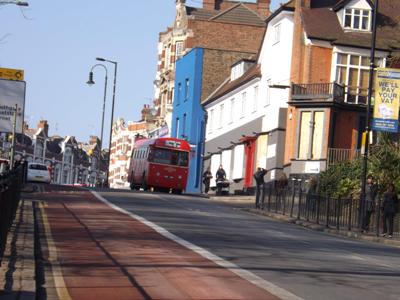
It's easier downhill...
Photo © Daniel Sullivan
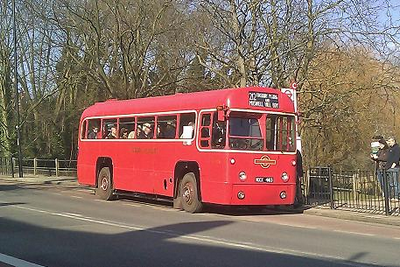
Force of gravity. Heading down Muswell
Hill.
Photo © Richard Kemble
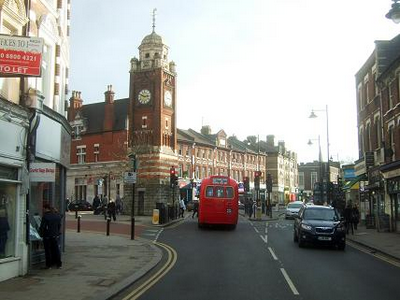
Crouch End Broadway seemed a little startled by
its sudden RF service.
Photo © Peter Osborn
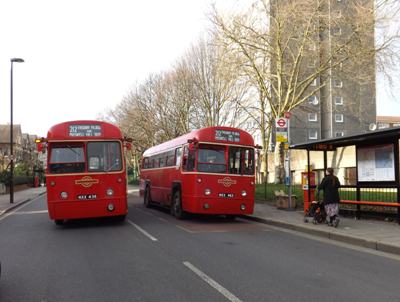
It was a real pleasure that RF459 decided to
come out to celebrate the 60th anniversary, and running back to
Finsbury Park we worked in true LT-style, here beside Crouch Hill
Station. The anagram is a nice touch.
Photo © Daniel Sullivan
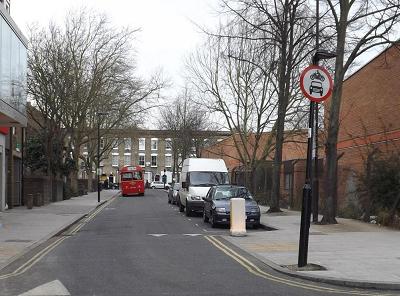
RF459 approaches the terminus in Clifton
Terrace, Finsbury Park - rather changed
from the 1950s.
Photo © Daniel Sullivan
|
Local views
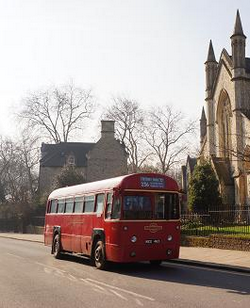
Christ Church Highbury forms the backdrop for
the positioning working on the 236.
Photo © Thomas Drake (champion sprinter)
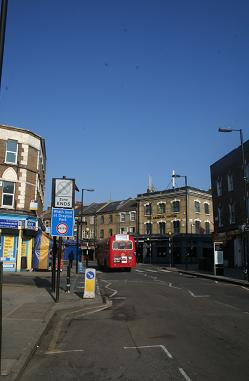
Running in as a 236, RF486 passes the end of
Gillespie Road, Finsbury Park.
Photo © Nigel Henty
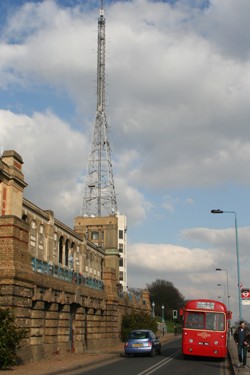
The 233 is a wonderfully mixed route, taking in
the best of the Northern Heights and gritty Northumberland
Park.
Photo © Peter Larkham
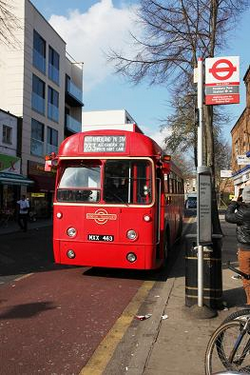
Another Clifton Terrace shot, as RF486 returns
from its 233 run.
Photo © Adrian Palmer
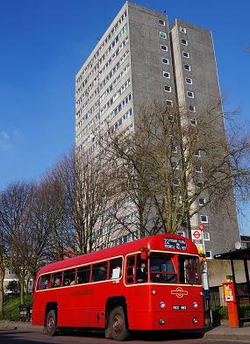
Ilex House at Crouch Hill towers over the
212. Note the roadside ticket machine, installed on the W3 as
an experiment prior to their adoption across central London.
Perhaps they will be the last too, the decision having been taken
to remove the central ones.
Photo © Thomas Drake
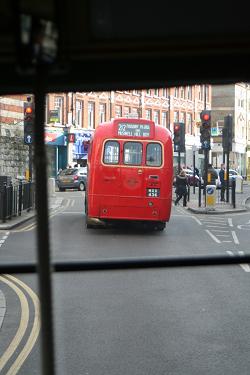
An RF in our sights (see the bullet holes article and look closely at Thomas
Drake's rear view picture here).
Photo © Peter Larkham
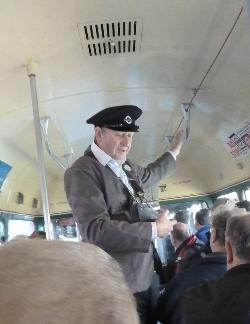
RFs on the 212 and 233 carried real
conductors.
Photo © John Parkin
|
Route 233
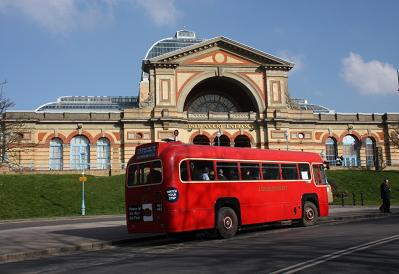
Alexandra Palace's grand west front.
Photo © John Parkin
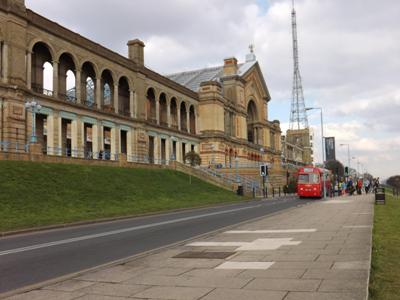
The grand southern facade of Alexandra Palace,
with the new road constructed in 1938, part funded by London
Transport, which allowed the operation of a through bus route
and removal of the tram tracks.
Photo © Daniel Sullivan
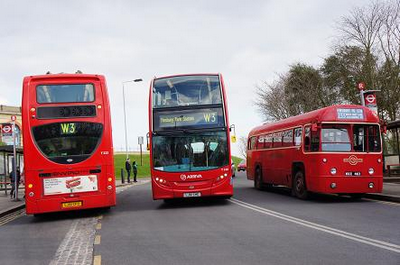
The W3 and the 233 are the same route, before
and after Reshaping. Arriva's
Enviro400s compared.
Photo © Thomas Drake
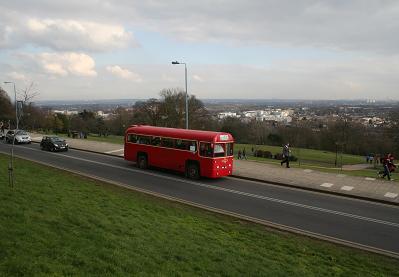
Part of the dramatic London view from the Ally
Pally, looking east.
Photo © Nigel Henty
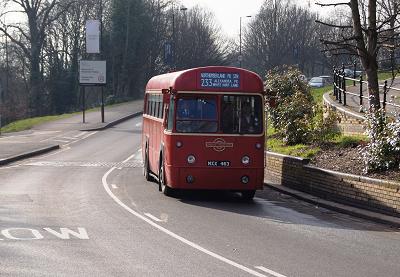
At Palace Gates, RF486 is just below the point
of N Rayfield's late 1950s picture.
Photo © Geoff Ragg
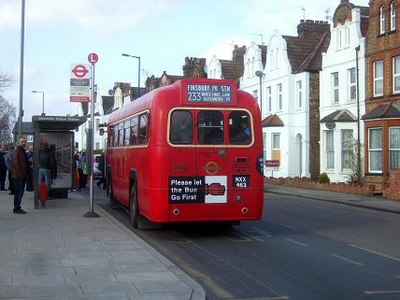
Now renamed Alexandra Palace Station, Wood
Green Station (ER) was a short-working terminus on the 233.
The former Palace Gates Station, whose line over Station Road
required the 233 to be single-deck, was beyond the houses.
Photo © Peter Osborn
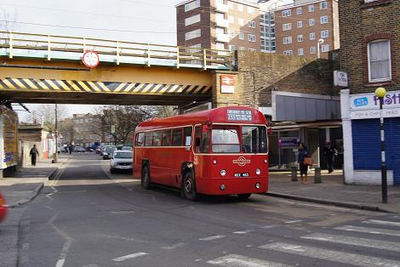
Unlike the 99-year old 212, the 233 is
relatively recent, with the eastern section from Wood Green to
Northumberland Park only being added in 1949. One of that
section's most famous landmarks is White Hart Lane Station.
Photo © Geoff Ragg
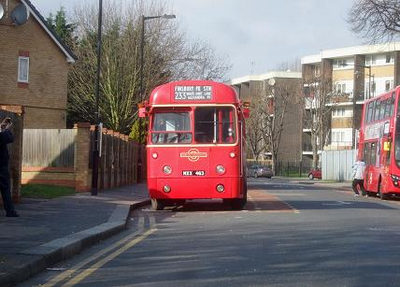
The Northumberland Park terminus has been
rebuilt since 1949, as have its surroundings.
Photo © Peter Osborn
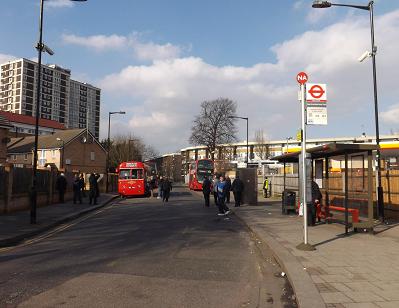
A broader view of Northumberland Park.
With enthusiasts.
Photo © Daniel Sullivan
|